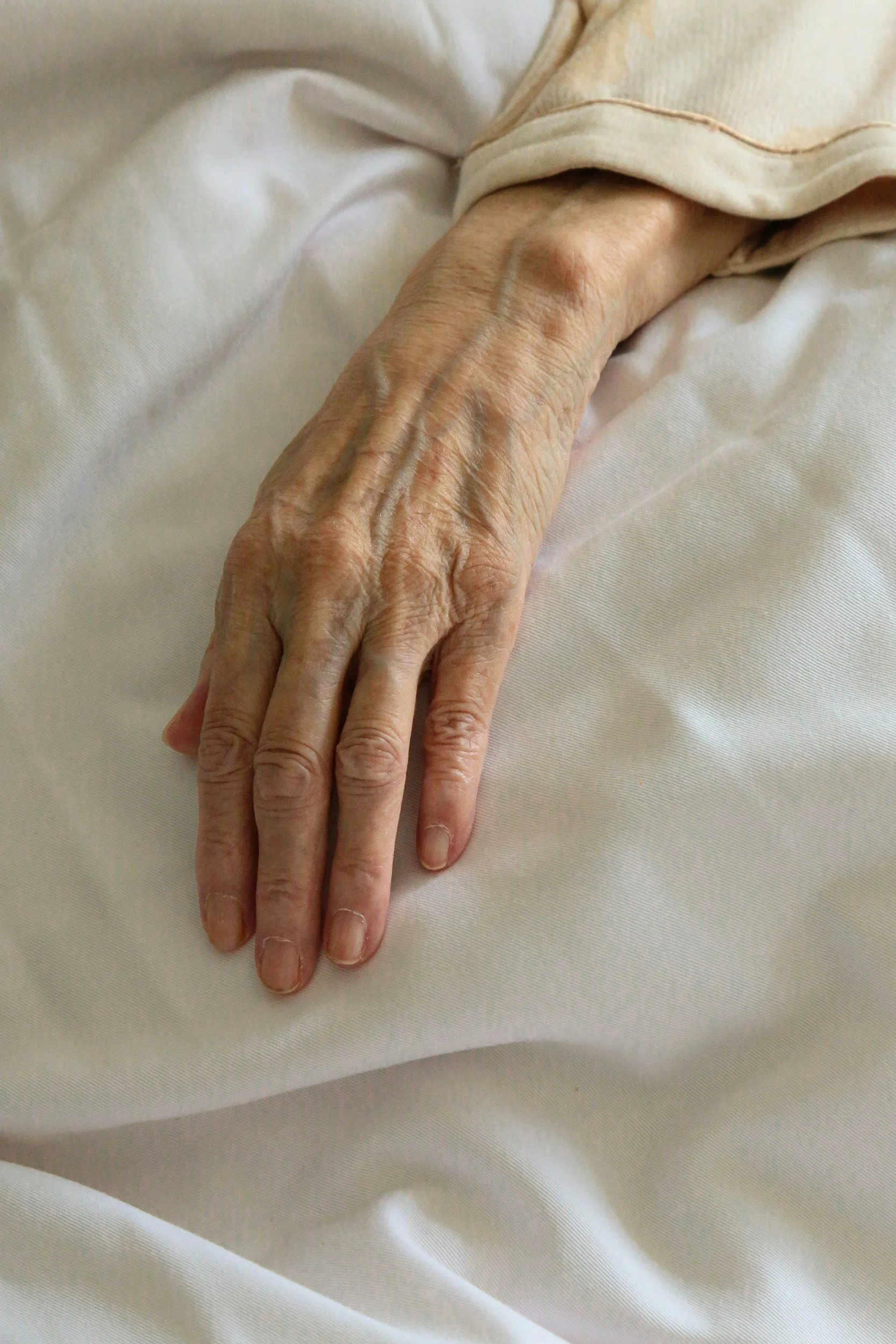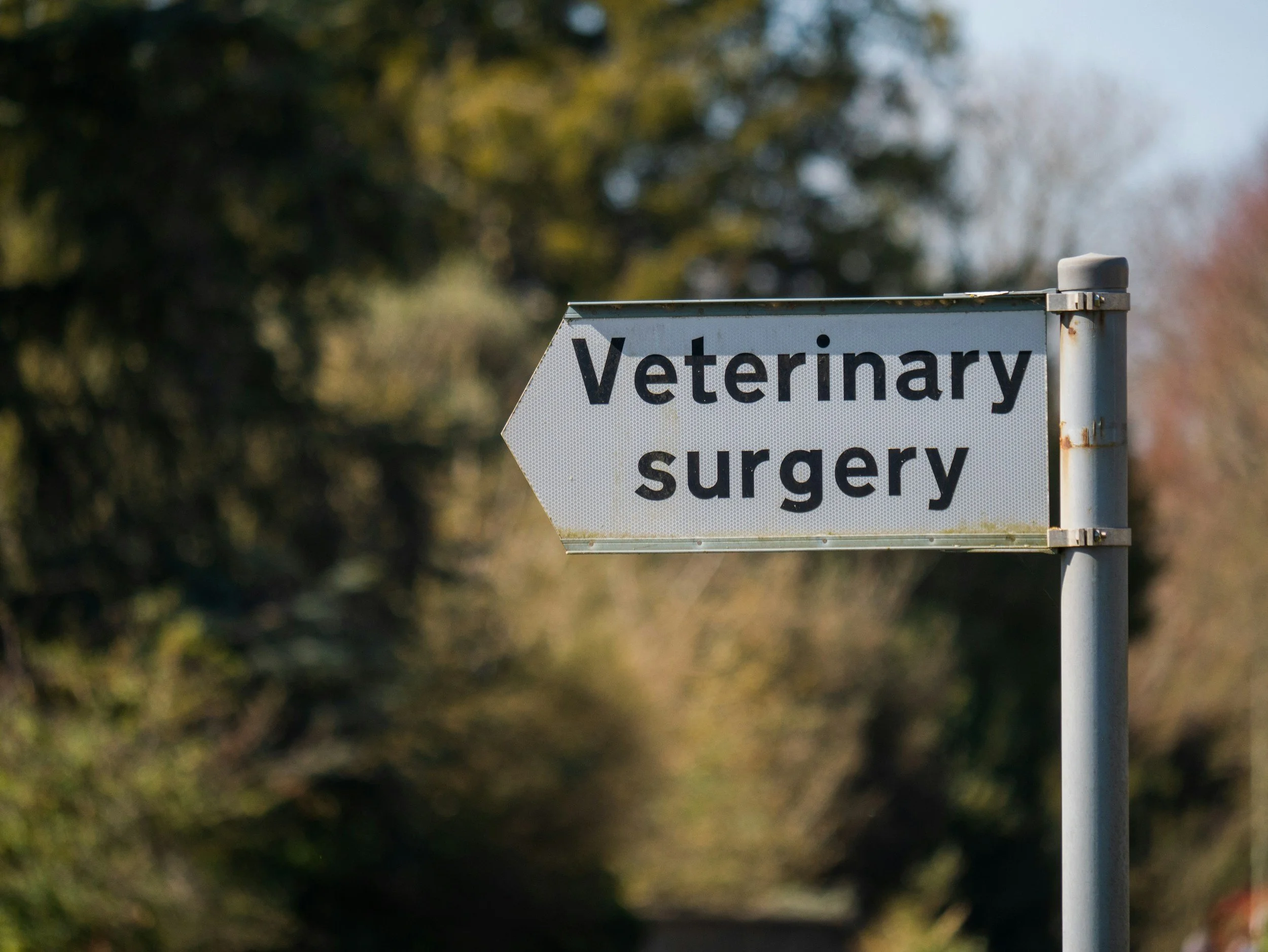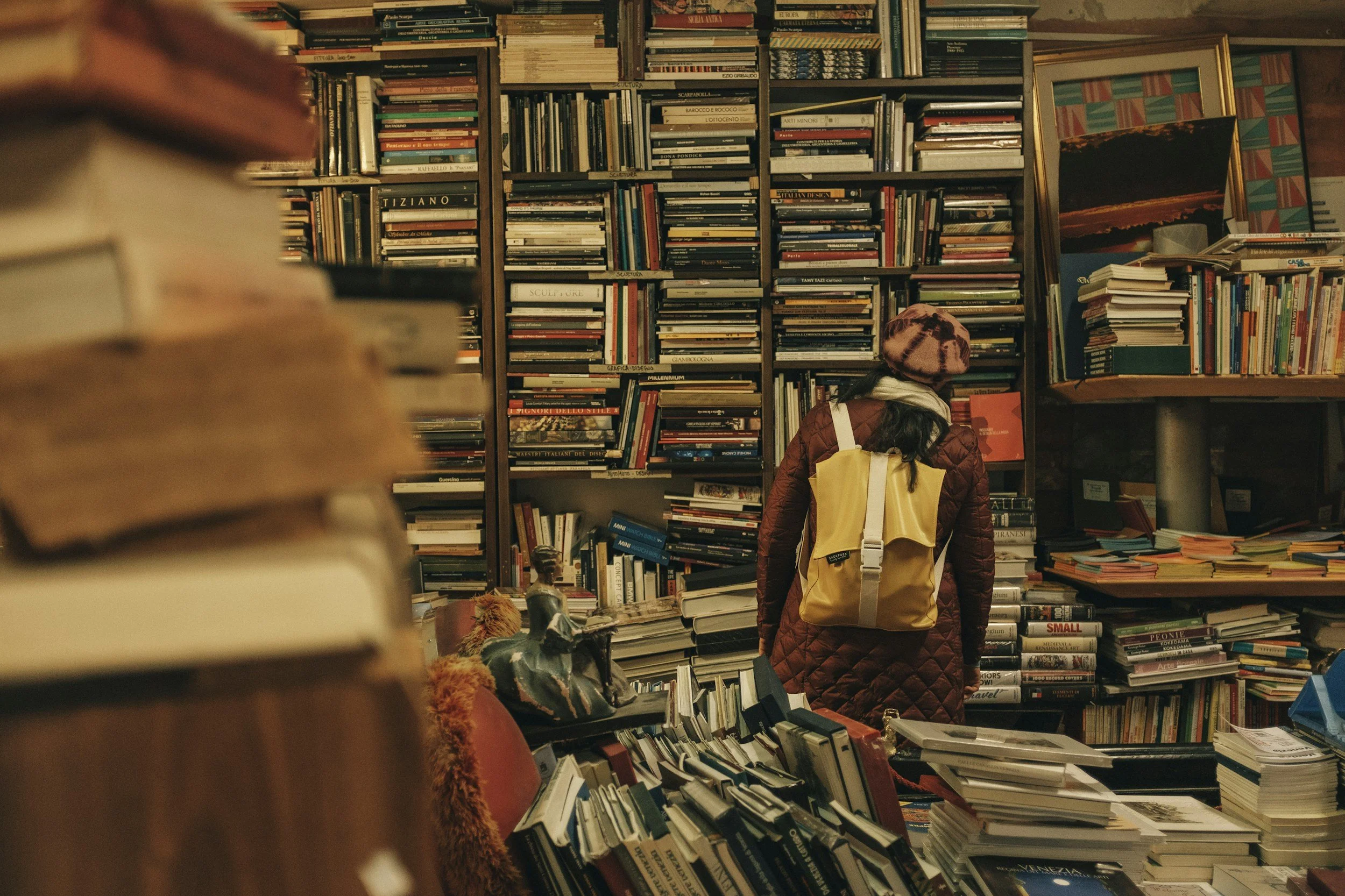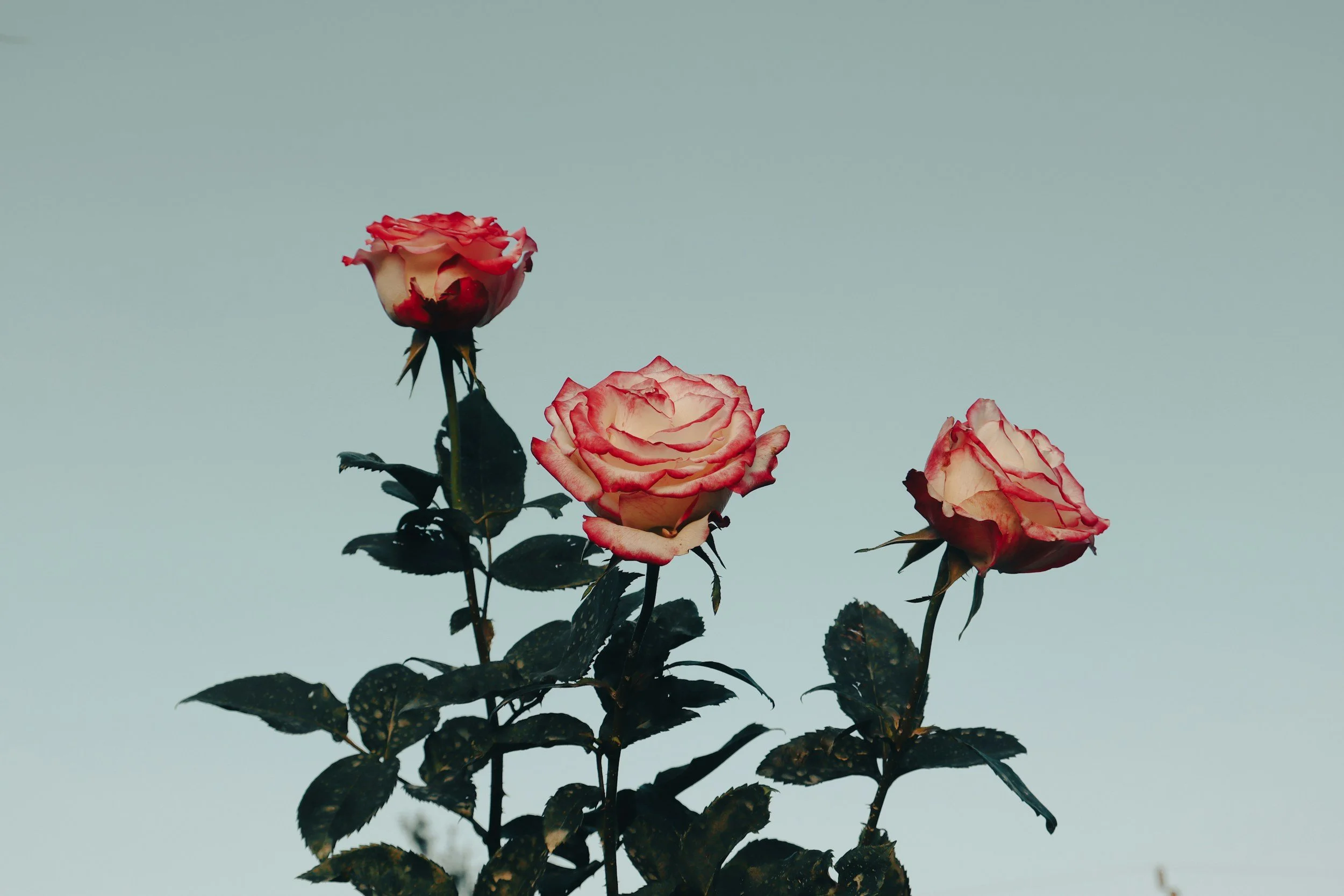Where Do All the Poppies Go?
I thought that when you left, it would get easier. The pain of yesterday still cuts through every bone—all the flesh that reminds me of my mortality, all the flesh that reminds me of you. All of my flesh and bone that belongs to you—that is you. They say there is no greater love than the love we receive from our grandmother. That never felt true to me until there was no more love to receive. Death is hard. Death is uneasy. There is nothing sublime about death—about losing the love from a grandmother. Death is ruthless, unforgiving, boastful, proud, and rude. Never in combination, never alone. And death is all of these things, but I never knew what it was to you. A mere ninety-three years of staring it bare in the face, and I never knew what it meant to you—even after all of these years. You were strange in that way, keeping sure to hold your head high when the love of those you cherished vanished. I wonder where your love went, though it never disappeared. I hold it in my heart, but I never feel anything because love without the host present is the worst kind there is, the most painful love of all. It does give or taketh; it only lingers.
Grief is such an uneasy state of being for me. I always knew that losing you would mean losing my best friend, but I never imagined how empty it would leave me feeling. I am a single, childfree, penny-hoarding, lustful twenty-something-year-old. What more do I have to lose? I suppose there is the obvious, like the amazing soil beneath my feet and those few that love and cherish me. But you weren’t just anyone—you were my grandmother. My fucking grandmother. The woman that bore my existence into this world one way or another. You were the beginning, middle, and end of it all. You weren’t just any grandmother. You were a Black grandmother—the head that stands on the shoulders of the Black family unit. You epitomized strength, grace, unbreakable faith—all that I wish I had more of. How does one stand or even walk through life when there is no head to rest on their shoulders?
Without you, there is nothing to do but linger. Linger in my pain, my grief, the memories we shared, the love we had that no longer lives, the place we shared our lives. I lived for you in those last few years of your life, not because it was expected of me, but because I was afraid of losing you, of losing a piece of my life that is irreplaceable. You were brewing in your old age, miserable from the pain of your aging body, praying each day that passed by that you wouldn’t meet your destiny. None of it mattered, though, because you loved life. You loved your life so much, and you lived each to the fullest, something I am miserably failing at the moment. I don’t feel I’ve lived since you left me to face the world all on my own, bare-naked and all. Worst of all, this world is like no other, and neither is this life. Together they are hollow clouds of the uncertainty of what used to be yet what could be—each one that I watch pass by with every breath, every blink of an eye. I, too, am lifeless, wasting through my days, drenching the ground below with my tears. I wonder when and if things will get better without you, but I can never know without living it firsthand. So, I wait and hope that goodbye is not forever, that this feeling is not forever. Because I haven’t felt anything, not even the slightest touch of your wrinkled hand caressing the apples of my cheek. Not a cold rush of air whispering my name, nor a flicker of light signaling your presence, not even a soft breeze to wake these idle summer afternoons. I feel nothing but emptiness and the anxiety of not having you, my grandmother, walk me through all of it. I feel nothing but grief.
They say, too, that grief does not subside, that it gets worse before it gets better. I know that to be true. Not because I don’t want to let go of what was, but because I can’t let it go. My grief is different than all the others. My grief is heard of but rare. That day is one in a million, the day you left. The irony of it all makes me ponder all the things it could mean. The day you left, the day you blew your last breath, was the same day your open arms welcomed me into the world. My tiny, fragile body was all warm with shades of red, white, and blue—how patriotic of me. In my first few hours on this very earth, you were there. Your last few hours on this very earth, I wasn’t there. I wasn’t there. That, too, only adds to my undying grief. Was that how it was all meant to be? You left this earth, leaving me on the one day I look forward to every year, my not being there to see you out, to embrace your lifeless body? I wish life and its tightly pressed lips would give me all the answers I seek. I wish the great beyond were more accessible for those of us belonging to this not so great, mortal near. I wish you could give me a sign, any sign—a poppy blossoming from the dirt patches of our front lawn—that I would believe. I cherish your love of poppies, not so much the flower, but their poetic nuance captured by the poet John McCrae. The poet who wrote “In Flanders Fields.” Remember how you would always ask me to read it to you, how you loved that poem from your childhood? The essence of each line, “In Flanders fields the poppies blow/Between the crosses, row on row,/That mark our place; and in the sky/That larks, still bravely singing, fly . . .” You could only repeat those few lines, but it was enough to make me love you even more, for we shared a love of words among many things. That poem is my hello, my goodbye, my love to you—one of the only ways to escape my grief at times. I read it to you in your life on earth, and I read it when I said goodbye to you in spirit—the irony of it all. Poppies are symbolic of death, of the dead. I wonder where they go once they’ve blossomed and bloomed. Do they also meet their end? All these things are left unsaid. And whenever I hear those words of John McCrae, or they spontaneously come to mind, I think of you and your favorite color, red, the wisdom and elegance you blessed me with. Just as you did in your days enjoying life, I shall carry the words of John McCrae in my heart for as long as my existence allows. For as long as I remember your love.
I have no solution to grief, only to live through it. I will have to live through that same day for as long as I live, the day that signals your last day on this earth and my first day on this earth. I will have to hate it and cherish it forever. I will have to look forward to it and dread it forever. I may smile and cry because of it forever. My grief will always live in that day, but I have faith I can handle it for both of us. I like to think your leaving me on our day was a tribute to our shared unbreakable bond; it was a bond unlike any in our family. Of all 365 days in a year, you chose to let go on that day. For you, I’ll carry it all in my heart and my soul because this isn’t the end. I haven’t handled your passing or the grief that has followed. Like everything in my life right now, it lingers untouched and unbothered until I’m ready to face it. I don’t have all of the answers, and neither did you. I don’t know what my destiny looks like. I don’t know what the future will look like, and I don’t know where all the poppies go. I know that life is quite unbearable with you not by my side, that it sucks not having you here, that it sucks in general. All is what makes it worth living until the very end when the poppies reach beyond the soil. When dust return to dust.
-Anjeneé Cannon
Anjeneé Cannon is a queer Black creative artist from Wilmington, Delaware. Her work has been published and is forthcoming in Literature Today, The Future is Black Female, HerStry, the Potomac Review blog, Genre Urban Arts, and Santa Fe Writers Project. She has previously served as an editing intern for the Potomac Review and enjoys creating spontaneous art, taking long walks in nature, and tweeting random thoughts on Twitter.





















